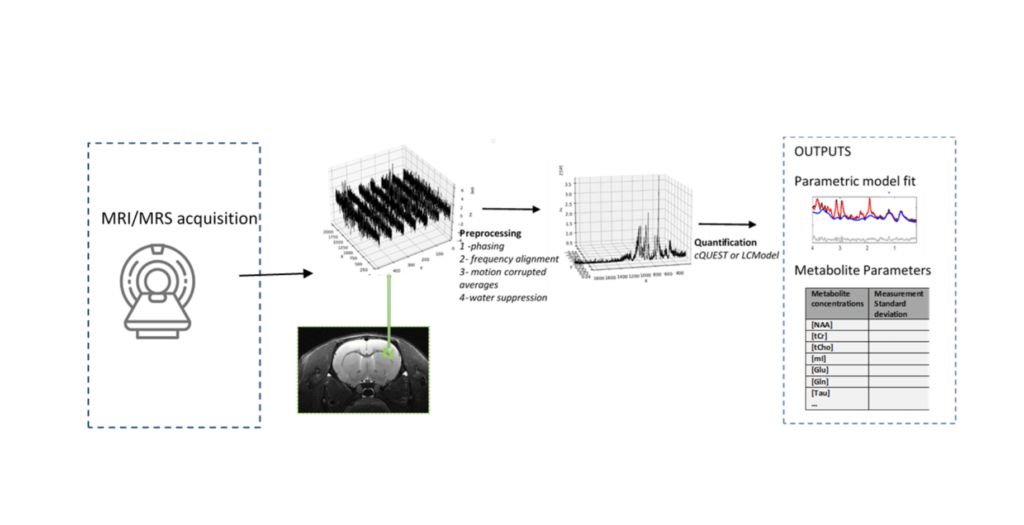The Virtual Imaging Platform (VIP) is a web portal for medical imaging applications. It allows its more than 1500 users to access scientific applications as a service, as well as distributed computing resources in a transparent manner. It exploits the resources available in the biomed virtual organisation of the EGI e-infrastructure to offer an open service to researchers worldwide.
 Magnetic resonance spectroscopy (MRS) is a medical imaging technique that exploits the magnetic properties of biological tissues to determine their chemical composition. In particular, we can use the magnetic resonance signal to estimate in vivo the concentration of certain metabolites (e.g.: neurotransmitters, amino acids) at a certain location in the body (e.g.: a region of the brain). This requires specific acquisition protocols and reconstruction and quantification pipelines that need to be studied to increase the robustness, reproducibility and reliability of measurements.
Magnetic resonance spectroscopy (MRS) is a medical imaging technique that exploits the magnetic properties of biological tissues to determine their chemical composition. In particular, we can use the magnetic resonance signal to estimate in vivo the concentration of certain metabolites (e.g.: neurotransmitters, amino acids) at a certain location in the body (e.g.: a region of the brain). This requires specific acquisition protocols and reconstruction and quantification pipelines that need to be studied to increase the robustness, reproducibility and reliability of measurements.
This use case covers the whole MRS data lifecycle, from acquisition to storage, management, analysis and reuse. Data is acquired on the PILoT facility and stored in a Girder warehouse with associated metadata. Data is then processed with tools available on VIP and results are pushed back to the Girder warehouse.
The Girder platform stores data enriched with metadata, allowing for data management, access and discovery. Girder is also integrated with VIP, which provides a catalogue of available tools (which can be easily enriched with new ones) and a set of reproducibility services, such as a reproducibility dashboard or the possibility to “publish” results on Zenodo.

